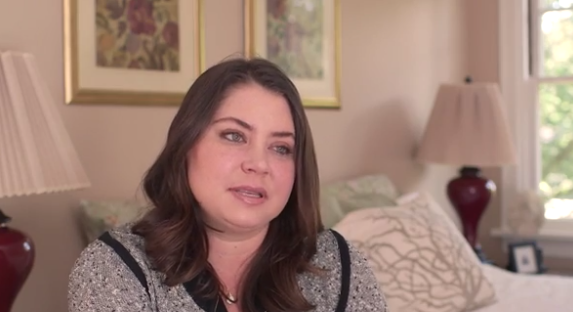Brittany Maynard: Terminally ill euthanasia campaigner dying of cancer ends her life by assisted suicide
Maynard had stage four malignant brain cancer and had decided to take her own life

Your support helps us to tell the story
From reproductive rights to climate change to Big Tech, The Independent is on the ground when the story is developing. Whether it's investigating the financials of Elon Musk's pro-Trump PAC or producing our latest documentary, 'The A Word', which shines a light on the American women fighting for reproductive rights, we know how important it is to parse out the facts from the messaging.
At such a critical moment in US history, we need reporters on the ground. Your donation allows us to keep sending journalists to speak to both sides of the story.
The Independent is trusted by Americans across the entire political spectrum. And unlike many other quality news outlets, we choose not to lock Americans out of our reporting and analysis with paywalls. We believe quality journalism should be available to everyone, paid for by those who can afford it.
Your support makes all the difference.A young woman who reopened the debate over assisted suicide after publicly announcing she would take her own life, has died.
Brittany Maynard, 29, who campaigned for “Death with dignity”, was suffering from an aggressive malignant brain tumour and died in Oregon from taking lethal drugs prescribed by a doctor.
Maynard was diagnosed with cancer on New Year’s Day and was later given six months to live. She and her husband Dan Diaz moved to Oregon earlier this year due to the state’s right-to-die laws.
She became a nationally recognised advocate for the group Compassion & Choices, a non-profit organisation that works to improve patients’ rights and choices at the end of life.

Sean Crowley, a spokesperson for Compassion & Choices, said on Sunday that Maynard died “as she intended – peacefully in her bedroom, in the arms of her loved ones”.
Maynard posted a video to YouTube in October publicly explaining that she had chosen to die on 1 November, stating: “I can’t even tell you the amount of relief that it provides me to know that I don’t have to die the way that it’s been described to me, that my brain tumour would take me on its own.”
She later released a second video stating that she was considering postponing her plans as she “still has enough joy” in her life, but added that “it will come because I feel myself getting sicker. It’s happening each week”. Maynard died on 1 November as she had originally intended, and Crowley said she had been suffering “increasingly frequent and longer seizures, severe head and neck pain, and stroke-like symptoms”.
“As symptoms grew more severe she chose to abbreviate the dying process by taking the aid-in dying medication she had received months ago,” Crowley said.
In a final message, Maynard wrote: “Goodbye to all my dear friends and family that I love. Today is the day I have chosen to pass away with dignity in the face of my terminal illness, this terrible brain cancer that has taken so much from me… but would have taken so much more.
“The world is a beautiful place travel has been my greatest teacher, my close friends and folks are the greatest givers. I even have a ring of support around my bed as I type. Goodbye world. Spread good energy. Pay it forward!”
Oregon was the first U.S. state to make it legal for a doctor to prescribe a life-ending drug to a terminally ill patient of sound mind who makes the request as part of its Death With Dignity Act. The patient must swallow the drug without help; it is illegal for a doctor to administer it. Washington State, Montana, Vermont and New Mexico have since joined Oregon as the only five states to allow assisted suicide for the terminally ill.
Additional reporting by agencies
Join our commenting forum
Join thought-provoking conversations, follow other Independent readers and see their replies
Comments